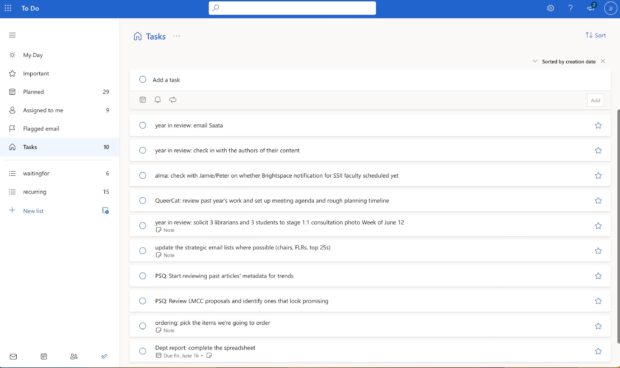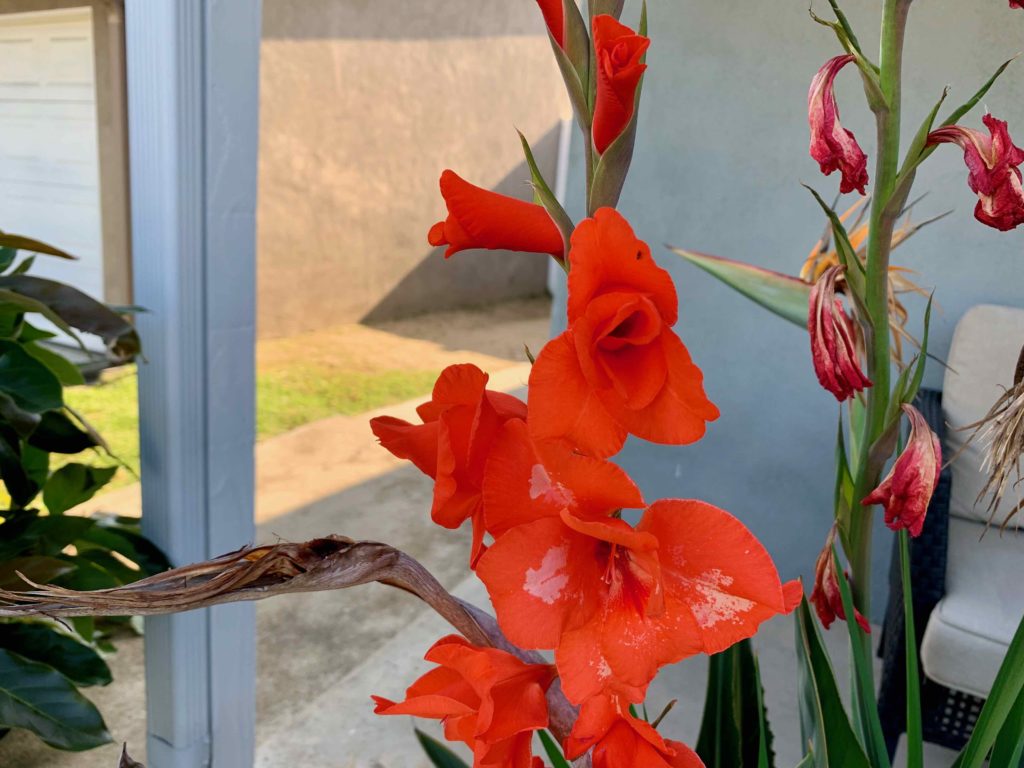Folks often ask if it’s slower at the library during the summer. Yes, there are fewer students and faculty around. Many classes are online and the building is quiet for the first time in months. For the outreach team, however, we keep moving forward! From now through August, my team leans heavily into planning mode: outlining new project workflows, coordinating people and resources, preparing annual reports, and most importantly taking the time to update and fix what we couldn’t to pay attention to during the academic year.
We have nine summer projects we’re hoping to complete before students return in August:
- Universal design for learning and events: Using principles from UDL, my team is looking for ways to improve our programs and events, making them more accessible for a wider range of attendees.
- Comms coordinating meeting: Our current way of coordinating external comms usually involves asynchronous messaging on Teams. We are looking at creating a more formal structure and timeline for both ideation and creation of materials.
- New event assessment tools: We just wrapped up a year-long pilot test of a new survey tool for library programs. Now, we need to take what we learned to create custom survey instruments for each event.
- New library merch: We’ve emptied out our library merch pile! It’s time to design and order new library branded merch for fall.
- Update exhibitions guidelines: There are a number of recurring pain points in our hosted exhibitions program. I’m hoping updated guidelines with clearer expectations for our exhibitors will help.
- Improving partnerships protocols: We work with more than 40 partners throughout the year to host events and reach students. I’d like us to “up our game” by examining what makes a good partner, determining best practices, and updating our protocols.
- Banned books exhibit: Our banned books exhibit needs a refresher. We’re planning to update how we contextualize and talk about banned books beyond simply highlighting commonly challenged titles and listing annual stats.
- Student job descriptions: We’ve used the same job description for our department’s student workers for the past 5+ years, but the nature of the job has changed significantly since 2020. It’s time to rewrite the job description and possibly restructure the program.
- Finding the lights: A simple one, but one long overdue. For some of our larger events that happen in the evenings, we oftentimes need to adjust the lighting. Unfortunately, in our large, mostly open area building, it’s not always clear which switches control which lights. So break out the label maker! We’re going to finally figure this out.
There you have it. If you need me this summer, I’ll likely be plugging away at one of these projects above. For my academic librarian friends: what group projects are you and your teams working on this summer?
image credit: The Library of Congress on Flickr


